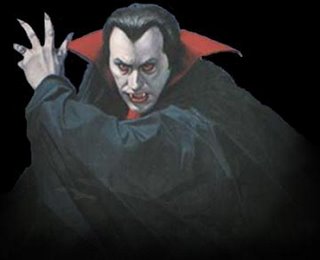
We in the "social" sciences are often looked upon as not real scientists. We're told that wat we do is play around with social settings, not cold, hard, "real" science. Now, obviously anybody with critical thinking skills (which would exclude most of those in the "hard" sciences) knows that this is simply not true. We can test social "reality" (if such a thing exists) just as well as physicists can test physical "reality" (again, if such a thing exists).
Think about it: design a test to prove gravity exists. I mean, we all know gravity exists, but can you prove it? No, you can't. You're probably thinking you can just pick something up and let it go a bunch of times and be done with it. But that doesn't prove gravity exists, it just suggests that for some reason that object is attracted to the ground. For the record, physicists still doesn't even know whay gravity works like it does (my personal favorite idea is string theory, and not just for its trippy, scientist-hippy implications).
The point is, you can no more criticise sociologists for saying that the effects of class are real even though we can't technically prove that classes exist or how they're reproduced (though we have some damn good ideas) any more than you can say gravity doesn't exists beause physicists can't technically prove it does or figure out why it works (though they too have some good ideas on the subject).
So, to recap: the "social" sciences are no less of a persuit than the "hard" sciences.
In fact, I'd like to suggest they're better. Take the case of vampires. You ask a sociologist about vampires, and we'll give you a great tale perhaps of the functions the notion of the existance of vampires might serve, or a reading of the cultural schemas that give birth to ideas of vampires, or possibly a meditation on the social forces that lead people to still give such power to the idea of vampires. That's just the tip of the iceberg. I'm sure other sociologists would give many other explanations and stories I can't even begin to think of.
But you ask a "hard" scientist about vampires, and you get some lame-ass description of how they'remathematically impossible.
Now where the hell is the fun in that?
2 comments:
i agree with you Woz. it's frustrating to me that social scientists don't receive that same level of credit and respect that the "hard" scientists get. earlier this week had i to refrain from kicking my friend in the balls. he claimed that his work in the IT program at the U was much more difficult than the "easy social stuff." too many of the IT people get locked in by their numbers. they lack the freedom to look deeper into the subject matter. social scientists have the opportunity to see the relavancy behind something. as in your example, we can see the functioning of vampires instead of casting any ideas aside because of one math theory of vampires.
Reading this post, I can only imagine how upset you must have been with the union election results. A bunch of critical thinking skill-deprived hard scientists working half-assed for a few months on the internet completely tore apart an effort you spent years of your life working on. They did it while spending almost no money, had no organizational support, and made you look completely out of touch and stupid.
Damn those number-crunchers!
Post a Comment